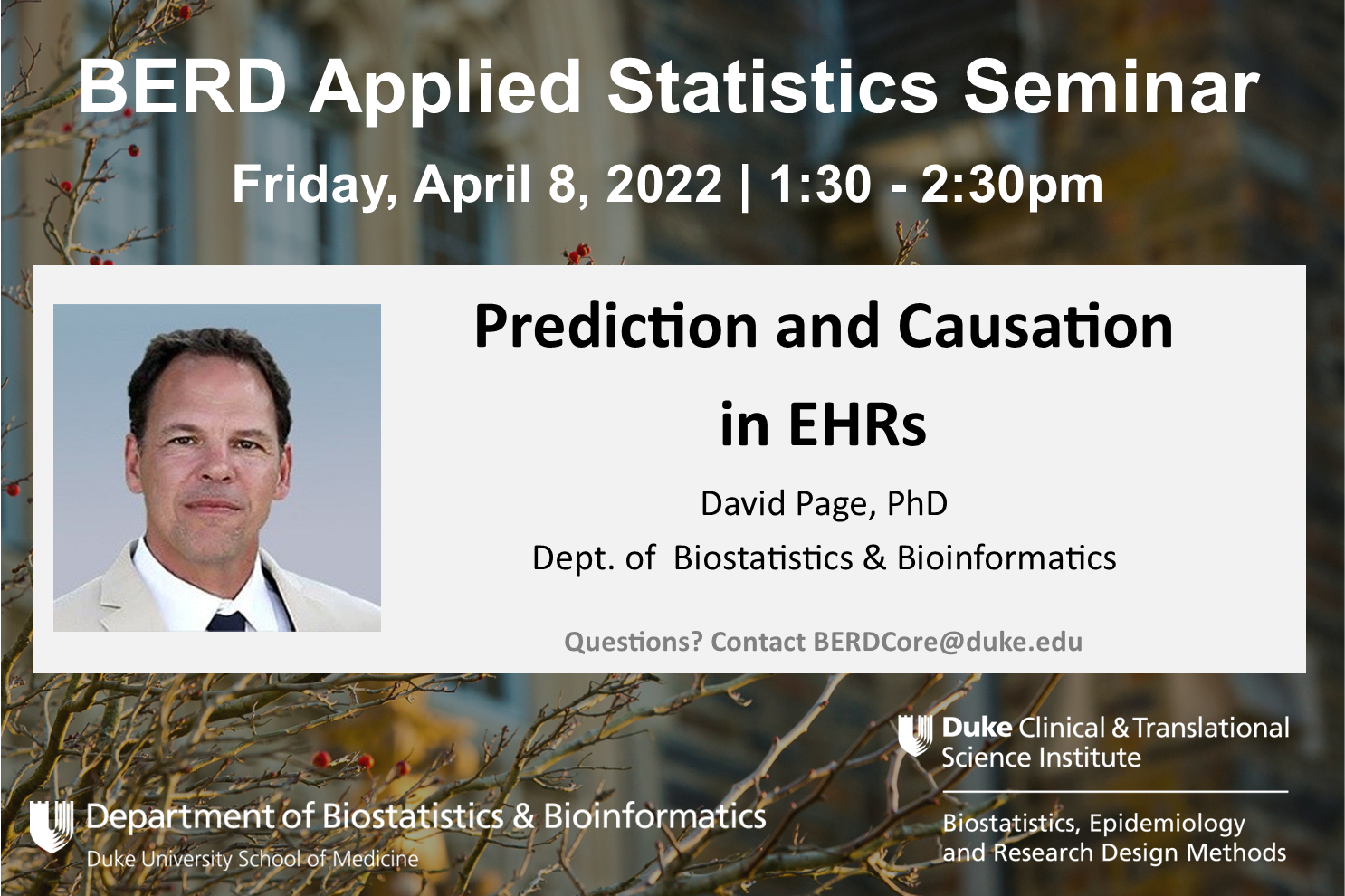
Speaker
Some applications of machine learning in medicine need only accurate prediction, while others require accurate attribution of cause and effect. This talk provides some empirical and theoretical results of both types of applications, including showing the following. First occurrence of thousands of ICD codes can be predicted with average AUC above 0.7, and accuracies can be further significantly improved by using family histories constructed entirely automatically from de-identified patient data. Beneficial and harmful side effects of drugs can be identified accurately by machine learning, but only when algorithms are modified to consider unobserved and partially-observed confounders, especially time-varying confounders. Audience: quantitative methodologists/analysts Technical level: advanced The Biostatistics, Epidemiology, and Research Design (BERD) groups at Duke, UNC, and Wake Forest are all supported by the Clinical and Translational Science Award and have teamed together to share educational and training materials.